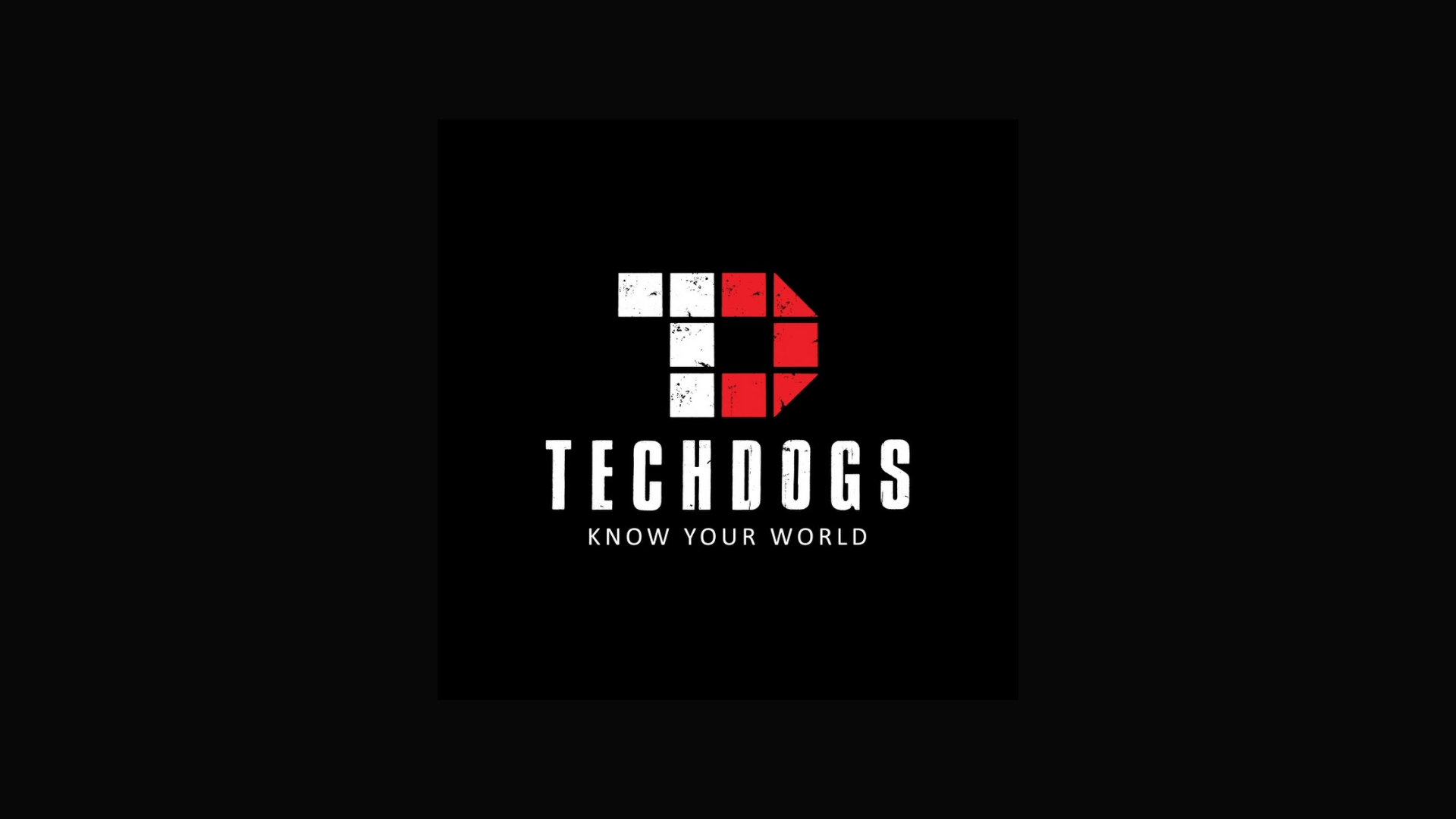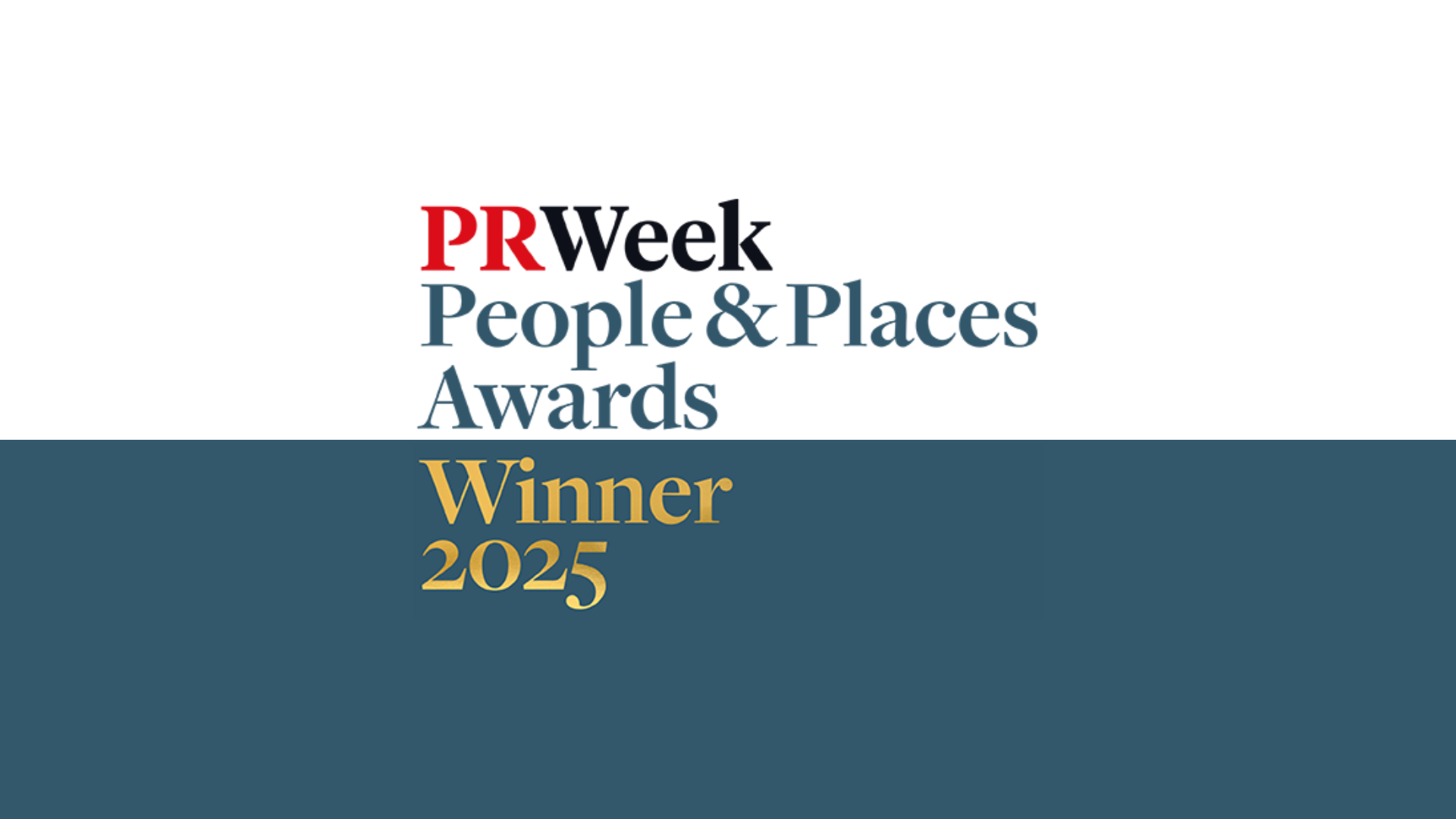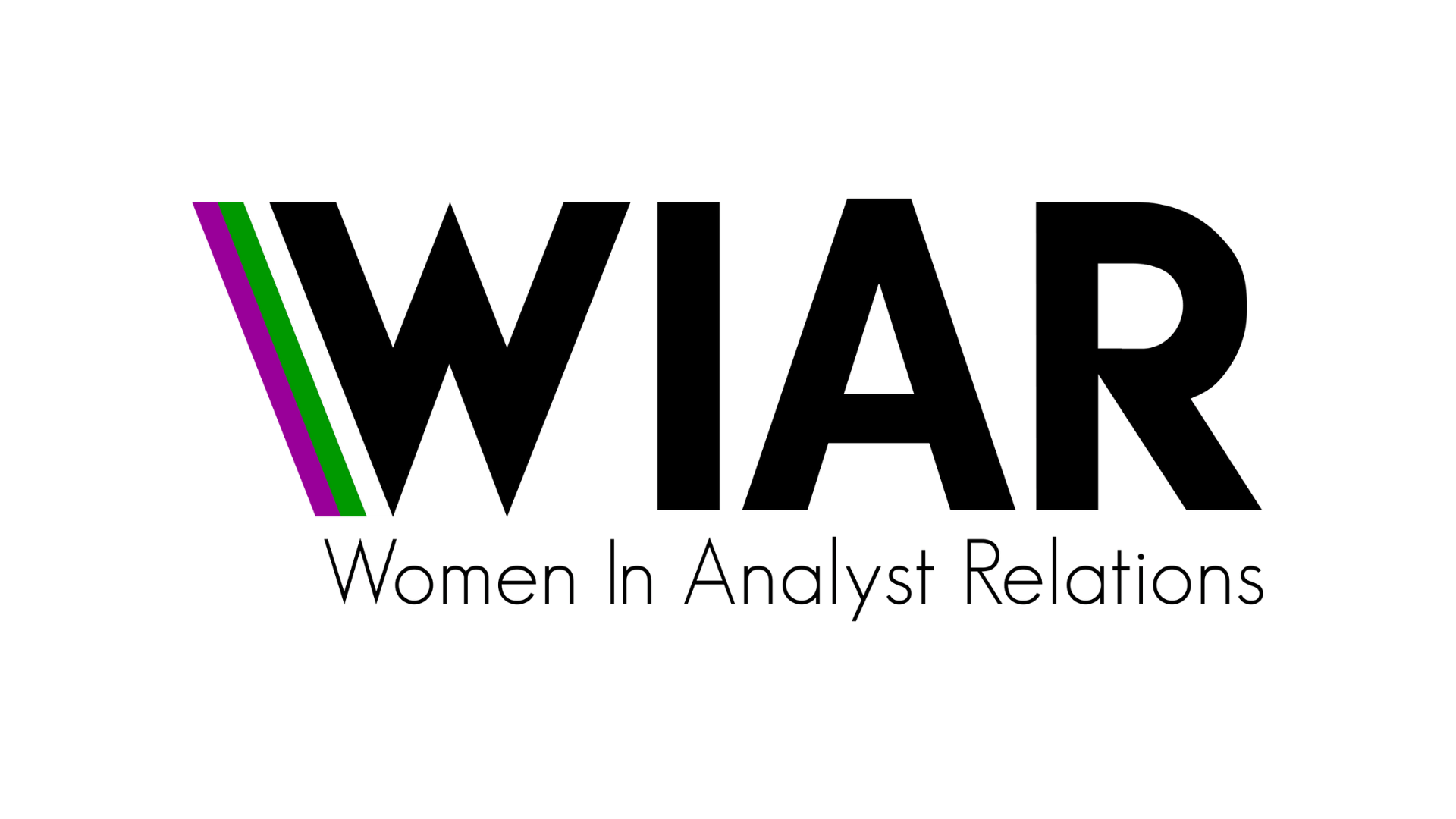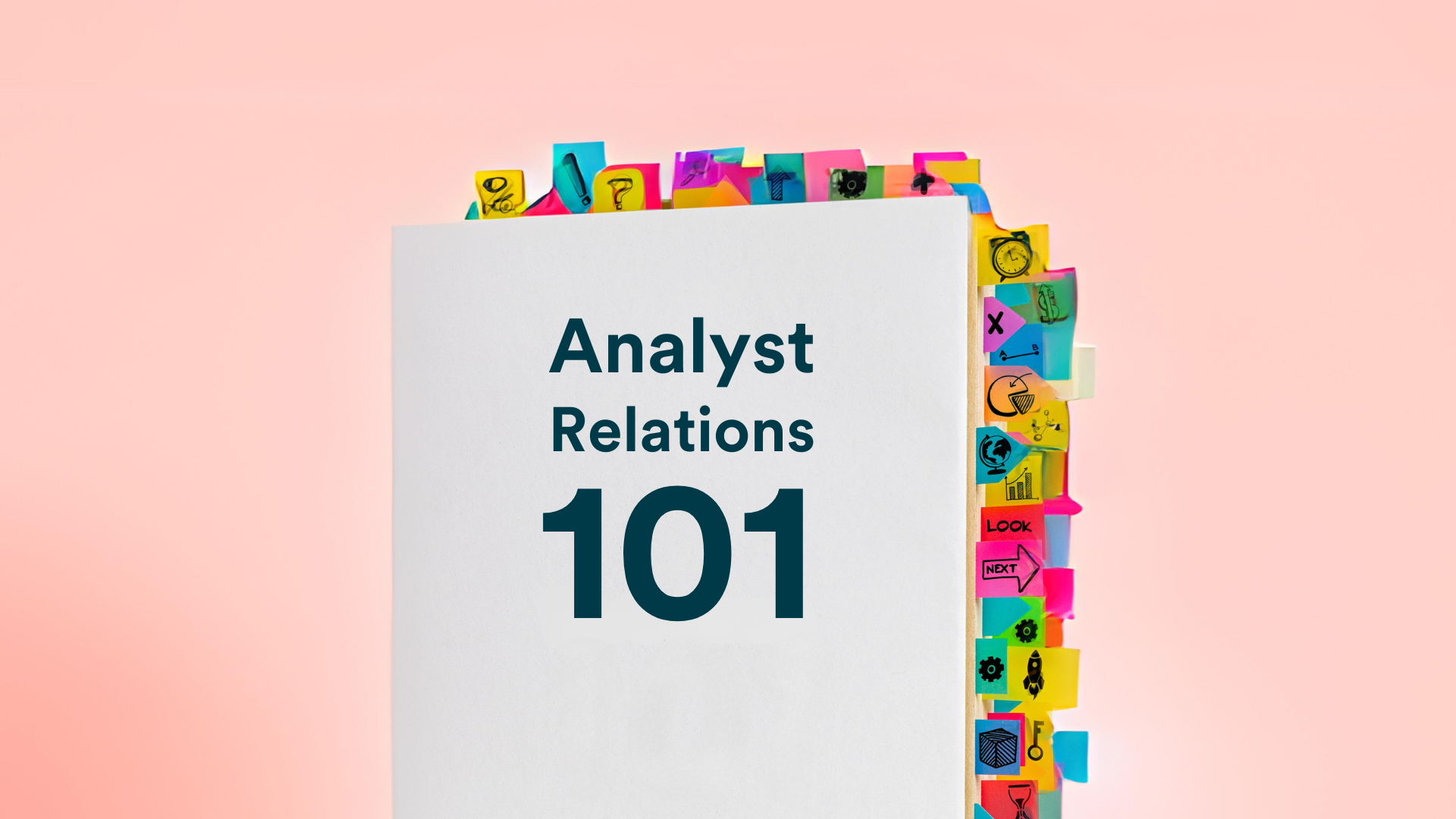As a senior account executive in the analyst relations team at CCgroup I wanted to rectify this. After gaining the support of a small team, I went on to set up WIAR in early 2019, with the aim to inspire, advocate, support and empower women in their AR careers, at all levels.
To raise the profile of Analyst Relations (AR) and inspire more women to choose this industry for their career, I am conducting a series of interviews with senior female AR professionals. The interviews will discuss how these women started their careers in AR, what it’s like to work in the industry and any advice they have for other women working in this field or looking to start their career in analyst relations.
The first interview in this series is with Kristin Taylor. Kristin has led the analyst relations functions for some of the biggest technology companies in the world. Most recently, she was IBM’s Vice President of Worldwide Analyst Relations – a role in which Kristin aimed to modernise and revive the organisation’s analyst relations program. She also focused on driving revenue and influencing strategy as well as promoting key areas such as AI, Quantum, Blockchain, IoT and innovations for the health and financial services sectors.
Kristin is passionate about women in analyst relations and how important we are for the development and the progress of the industry. In this interview, I speak with Kristin about the beginnings of her AR career, any advice she has for women working in the industry and what the future holds for analyst relations.
Kristin, can you tell me a bit more about yourself and how you started your career in technology?
I worked in corporate banking for the eighth largest bank in the United States where my job was to sell high ticket assets, assets that were being recovered by the bank, and then moved into my organisation to be sold for the highest dollar. When I left that job, I went into high tech and my first job in that field of work was at AT&T where I was selling interactive voice responses, telecom switches and phone systems, to some of the largest US companies.
Before going into analyst relations, you worked in sales, how did you go from this to analyst relations?
I believe that sales is the backdrop for analyst relations, the best analyst relations practitioners have been really successful salespeople. We have to be able to influence analysts, and clearly articulate the competitive differentiators about our products and platforms, better than our competition. Those are the skills that we elicit in the field of sales. We also have to have a strong understanding of the competitive landscape to be continually positioning the product. This is also something that we do in sales.
I came into the field of analyst relations because I had developed a product for a Fortune 20 company. As we brought that product forward, and were ready to commercialise it, we realised that the technical analyst community was, by far, the most important group of people that we needed to educate and influence in order for our product to be successful with consumers, businesses, Wall Street, journalists, etc. This happened around 2006.
You have worked in analyst relations for more than 10 years, if you look back at what the industry looked like when you started to what it is today, how does it compare?
Analyst relations teams are not a pass-through group who take questions and go out to find the answers from experts inside of a company. Rather, we have all the answers. We are supposed to own these powerful relationships with influential analysts in the tech sector, why would we not want to keep and grow them? Why would we want to pass them off, and be a broker to someone else in the business?
I just mentioned that I went into the industry in 2006, and I redefined the function of analyst relations inside of Qualcomm. We created measurement and metrics; we tied what we did to the most influential analysts around the world. I ran the function, much like a business, only working with the analysts who drove the most influence in global finance, such as the Nikkei and London Stock Exchange, Wall Street, and also with global media. This turned into me developing a proprietary weighted and ranked database. We used this database to decide, out of the thousands of analysts worldwide, who we needed to work with, who were the analysts that had the greatest impact on our brand, and our revenue. The most important analysts in my database had ties to Goldman (Sachs), Piper, Wall Street Journal and Bloomberg. This helped us to create a map, a plan of attack on a weekly basis of how we would proactively go after the most influential people.
If you had to share some tips and advice from your day-to-day work, what would they be?
I hate to sound cliché, but one of the most important things in my life, which helps me, is physical and mental health. Working out on a daily basis and meditating, I do Transcendental Meditation, helps with mental clarity, creativity and patience. I try to be a beacon of health and I hope that I influence the teams around me, the people that work for me, my colleagues, and also the analysts in this regard. If we don’t take care of ourselves, we really can’t be the best for our companies and for the analysts we’re working with.
Why should women look to build a career in analyst relations?
I care a lot about helping other women professionally! Women are so strong in multitasking and we naturally have very high emotional intelligence (EQ), sense of compassion and listening – these are skills that are very important in the area of analyst relations. Tech in general is a field that’s dominated by men and if a woman can use her innate multitasking skills and combine that with a deep interest in technical, then crossing those chasms between business and technical is a skill very much needed by corporations.
I try to inspire women to think about analyst relations as a field to get into, if they have any interest in really understanding how something works and doubling down and becoming an expert in it. This is not superficially understanding the basis of artificial intelligence for instance, but really understanding how it works. Spending time with engineers or technical product managers, so that they could explain how artificial intelligence engines might work in the company that they’re working for. In this way, women can actually hold a conversation with an analyst, they can sell it, they can promote it, they don’t need to pass the conversation off to an artificial intelligence expert. I get very enthused and ask women that may be thinking about doing something in business to combine their degree. I talked with women who are studying applied math, engineering, or physics and I told them that if they combine this degree with a business or English major, journalism or public relations, this wonderful blending would position them to be exceptional in the field of analyst relations.
What are the challenges that you have faced/still face in your day-to-day life in AR?
Despite being in this field of work for more than a decade, it’s still misunderstood, and it continues to be marginalised. Analyst relations tends to get the worst cut of the budget. It typically has the smallest amount of people working in the group, marketing and comms tend to get more budget than analyst relations. We have to change this. One of the biggest things I have done is to prove that analysts can drive revenue and brand awareness inside a company. For one of my employers, we drove nearly half a billion in revenue in 12 months, by using analyst influence to drive sales. This is just amazing! We need to have more analyst relations departments tracking their influence and tying it to the sales of the products and company and elevating it to CFOs and CEOs.
What are the negative sides of working in analyst relations or are there any negative sides?
It’s a very fast paced type of work. When analysts need our opinions, they need them fast. When our CEOs want us to influence an analyst, they need it doing fast. We have to be concise, we can’t make mistakes about numbers or performance, or differentiators. If the information we feed to an analyst is incorrect, it will reflect badly on them and us when they pass it along. Their name is everything in this business and so is ours. To have a good work ethic, and to be able to get it right, you have to have a high standard of how you work and be willing to work long hours. I guess this will come under the bucket of being a negative of working in this space, because one would consider this to be pressure. On the other hand, sometimes people feel enthused working like this and feeling that they’re really making a difference, and that they’re working at such a high level, they have the ability to impact a great deal for their business.
Figures suggest that the majority of AR professionals are women, both in Europe and the US. Do you think that our voice is heard enough or is it loud enough to be heard and taken into account?
Anyone’s voice can be loud enough if they just get up on the stool and start speaking. This is great to hear that these numbers are so high, I wasn’t aware of that, it doesn’t surprise me. Many of the groups that I’ve led had quite a few women, I’ve hired quite a few women into my teams. The most important thing is that women focus on building their technical aptitude in whatever field in tech they cover; that they are not admins who are booking calls for the experts in the company, but they are the experts in what they’re doing. I would challenge them to make sure that this is the way they’re building their career. This is the most wonderful field of work, in my opinion, to get into because it is a launching pad for so much. When I invite people and sell people on the idea of coming into analyst relations, to me, there’s just so little downside. When women double down and become experts in their field, they become so important to the business units inside of a company that they’re supporting, that often they will be offered positions beyond analyst relations. They may give three or four years to the analyst relations department but then they’re invited into the actual product teams themselves, into engineering, into corporate strategy. When professionals move to other fields of work, they’re taking all the relationships that they built with the analysts through the years, they will never lose that. This is so powerful in any job that they go on to do, when they’re in a dilemma about a strategy, when they are considering whether they need to make a decision on an investment, whether turning in a certain direction, adding a feature, they can pick up the phone and call an analyst that they’ve built relationships with. There’s so much power in going into analyst relations, but again, I need to emphasize that women need to build the expertise and become the experts in their particular areas.
I completely agree with this! We tend to develop really good relationships with analysts, and we carry those relationships throughout our careers. This is great, because you always have an expert to turn to when you need to.
If you can give one piece of advice to women who are working in analyst relations or the ones that are just starting in the industry, what would it be?
I don’t want to repeat myself, but I’ll emphasise it again, that women would need to develop their technical expertise and not to shy away from it, it’s the most powerful thing that they can do. If women then decide that analyst relations is not for them, that they don’t want to do it or are not interested in understanding and explaining how something works but they enjoy other parts of their job that could be administrative, calendaring, program management, etc., they should go to their bosses and talk to them about re-scoping their job or perhaps moving into another part of the business. Be honest with yourself and realise that you will become the most powerful in analyst relations by building technical expertise. Women will be constantly marginalised and have challenges in elevating themselves if they continue to stay on the administrative side of the house.
I would also broaden the advice to women in any field – women need to ask for what they want. We tend to let someone else take care of us. We believe that our boss will do the right thing when our review comes, and we’ll get the right amount of pay rise or bonus; or that our boss knows what we need in terms of next step in our careers. In fact, we’re in charge of our careers, we’re in the driver’s seat, and we should never put that on someone else. We will then constantly be let down and this is what causes a lot of stress for us, professional stress. We need to learn to take the wheel, that we’re in charge of our careers, we have to be empowered to speak up and we have to learn to do it in a strong but diplomatic way.
I wanted to leave this question for the end of our conversation, what do you think is the future of analyst relations?
I believe it’s one of the most underrated functions inside of a company. Often, it’s seen as the tail on the dog, when I actually think, it is the dog. Influence starts with technical analysts! When we look at Venn diagrams and we draw out communities – public relations, community relations, developer relations, investor relations and analyst relations, marketing – the very centre is technical analyst, it’s analyst relations. The influence that these analysts have flows down into very important areas. Journalists and financial analysts rely on technical analysts for feedback to create poignant articles or place a buy or sell on stock. Technical analysts’ educated feedback is so important, it can make markets and break markets. The function is simply underfunded, and misunderstood. We need to start running analyst relations like a business and bring people in, who are strong in sales, understand how to position it and are thinking every day about how to make money, as well as how analyst influence can actually drive revenue, and influence strategy and brands. If we start to track some of this influence, CEOs will be completely blown away and this could become an area that eclipses comms and marketing functions.
Kristin, thank you so much for talking to me!
It’s been a pleasure!














